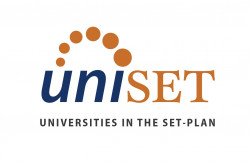EUA’s energy platform calls for universities to enhance their contribution to the energy transition and fight climate change
"The UNI-SET conference is a display of universities’ contributions towards EU policymakers and partners,” highlighted Prof. Torbjørn Digernes, Chair of the European Platform for Universities in Energy Research & Education (EUA-EPUE). “The presentation of our ‘Action Agenda for Europe’s Universities’ is the highlight of the event and will motivate universities to reinforce their activities and their collaboration with society and industry to face the energy challenge.” The European Platform for Universities in Energy Research & Education, in partnership with InnoEnergy in the framework of the EU-funded UNI-SET project, has provided unique frontier scientific input to EU energy research and innovation policy via the SET Plan designed by the European Commission. It contributed to the establishment of ambitious targets in its ten priorities in 2016. It is now developing the Implementation Plans with Member States and energy stakeholders from industry and academia. A mainstay of EUA-EPUE is to highlight the need for excellent research and education as the foundations for future research breakthroughs, competitiveness and a successful transition to a low carbon energy system. “The way EUA-EPUE has developed shows the commitment of EUA and our members to solving the global and societal challenges energy and climate change,” explained EUA President Rolf Tarrach. “The UNI-SET project engaged several hundred universities in only three years and we look forward to deepening these activities together with our members and partners.” Other key UNI-SET outcomes include the ‘Atlas of European Universities in Energy Research and Education’, which contains freely accessible information about Master programmes and research activities at more than 130 universities in 31 countries, and the ‘Roadmap for European Universities in Energy’, presented at the SET-Plan Conference in 2016 by Professor Torbjørn Digernes. “European universities are key players in the energy transition. One of the current challenges is to develop curricula and programmes which respond to the needs of accelerating the transformation of the energy system taking account of the rapidly evolving energy landscape. This requires innovation inside our own models of education and training and more cooperation with innovative businesses”, said the European Commission Head of the Energy Strategy Unit within DG RTD, Gwennaël Joliff-Botrel. “This is essential for Europe to lead the transition to a low-carbon economy and to ensure that young people become actors in a society oriented towards knowledge and prosperity.“ Background: ‘Identifying New Paradigms in Energy Research & Education: An Action Agenda for Europe’s Universities’ is a report and main output of the UNI-SET project which spells out new paradigms in energy education and research. This ‘Action Agenda’ is the first step of the implementation of the ‘Roadmap for European Universities in Energy’, building on the SET-Plan Education and Training Roadmap, developed in consultation with more than 300 experts in the field from 500 European universities. It highlights specifically the need for new approaches in research and education based on interdisciplinarity, collaboration and the use of newest scientific knowledge and teaching methods. More information are available on the European University Association website.
Countries
Belgium



